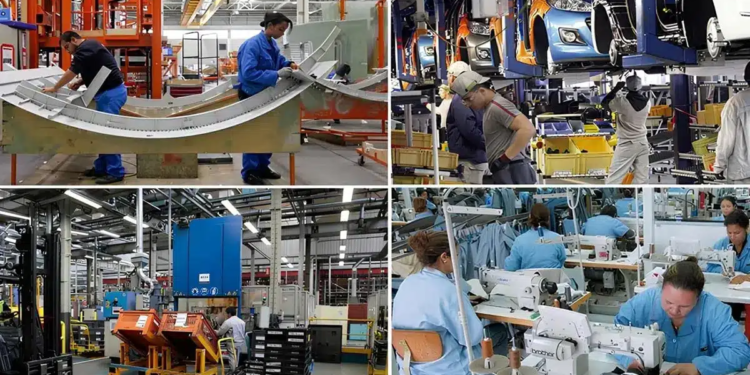During a joint plenary session at the Bardo Palace devoted to the 2026 budget of the Ministry of Industry, Minister Fatma Thabet Chiboub affirmed that the Tunisian industrial sector is the leading provider of jobs in the country. She detailed the structure of the industrial fabric, the dominant sectors and the importance of exporting companies in the absorption of the national workforce.
According to the figures presented by the minister, 5,000 industrial companies employ more than ten employees, including 2,066 entirely exporters. The latter represent 45% of the total industrial companies and concentrate 70% of employment positions, a clear indicator of their weight in the Tunisian economy.
Statistics from the National Institute of Statistics (INS) for the second quarter of 2025 indicate that manufacturing industries provide 20% of national employment, or nearly 720,000 jobs, placing the sector at the heart of job creation in Tunisia.
A detailed sectoral map
The minister clarified the sectoral distribution of the industrial fabric:
- Textiles, clothing, leather and shoes: a third of the industrial fabric and 34% of jobs.
- Agri-food industry: 22% of industrial companies, representing 15% of jobs.
- Mechanical and electrical industries: 906 companies (20% of the total) and 30% of positions.
This mapping shows both the historical importance of traditional sectors and the emergence of modern sectors offering qualified and diversified jobs.
Strengthen competitiveness
Fatma Thabet Chiboub stressed that her ministry’s industrial program aims to boost the competitiveness of Tunisian companies on international markets; preserve the existing industrial fabric, guaranteeing stability and employment; and develop industrial services to support modernization and economic diversification.
The emphasis is placed on the consolidation of the industrial sector as a central lever of the economy and on its strategic role in the creation of sustainable jobs.
Read also








